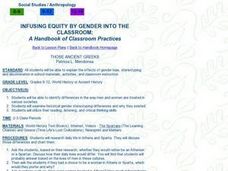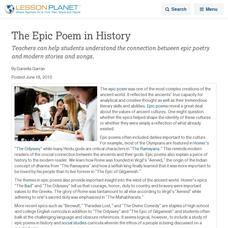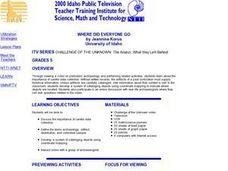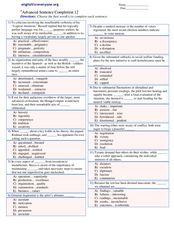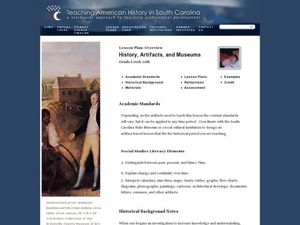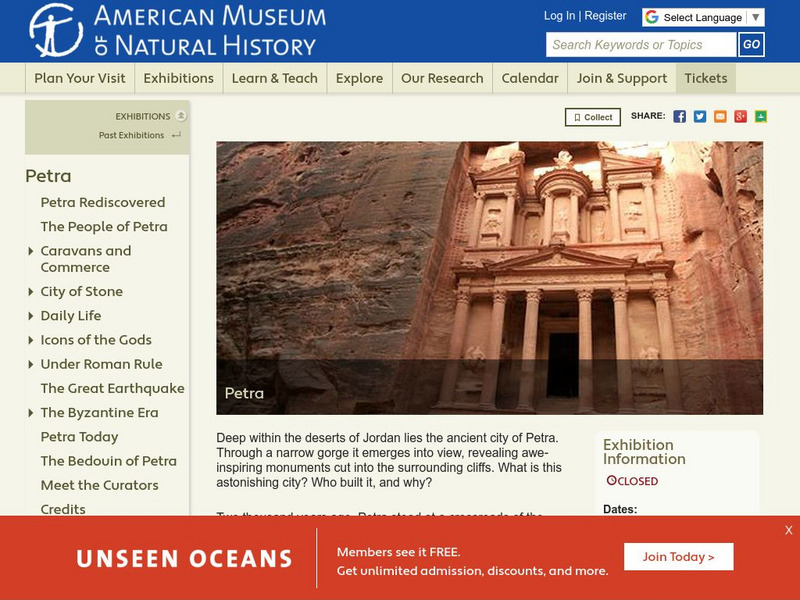Curated OER
Egyptian Pharaohs
Fourth graders give one oral example of a responsibility of a leader. In groups students answer questions on the information chart pertaining to Pharaohs.
Curated OER
THOSE ANCIENT GREEKS
Students research Athens and Sparta and based on their research they are to make a visual aid showing their findings.
Curated OER
Who are the Greeks?
Who are the Greeks and where did they come from? Answer this and many other interesting questions related to Greek origins. You'll expose your class to the Minoan, Mycenaeans, and Dorians. Then they'll uncover how those three cultures...
Curated OER
Great Wall of China
Young scholars investigate the construction of the Great Wall of China. In this Chinese history lesson, students research print and Internet sources about the contributions of the Qin, Han, Tang, and Ming Dynasties. Young...
Curated OER
Astronomy Merit Badge
Students explore astronomy through the Starry Night Constellation Adventure software. They print star charts and identify constellations. They sketch the Big Dipper and describe the Milky Way. They list the five most visible planets and...
Curated OER
The Epic Poem in History
Teachers can help students understand the connection between epic poetry and modern stories and songs.
Curated OER
The Maya
Students demonstrate an understanding of the Mayan Culture. This is done by developing and answering questions about cultural traditions. They also label geographical regions on a map to incorporate Geography.
Curated OER
Pontiac's War
Learners interpret primary sources concerning Pontiac's Rebellion. They are able to explain the motives behind the attack on the British. Students predict possible outcomes of Pontiac's Rebllion.
Curated OER
Beethoven: The Sound and The Fury
Pupils view a documentary on Beethoven. His immortal compositions have survived for generations and are as much a part of the modern world as they were almost two centuries ago. After viewing, students discuss Beethoven and compare him...
Curated OER
Where Did Everyone Go?
Fifth graders view a video, and perform related activities on prehistoric archaeology to gain an understanding about the importance of careful data collection. They develop a system of cataloging objects using coordinate mapping to...
Curated OER
Literature and the "Age of Anxiety" (1920s and 1930s).
Students examine historical events of the 1920s, World War II and the Cold War. They discover how literature reflects the economic, political, social, religious and historical concerns of a culture. Students compare literature writings...
Curated OER
Capitalization and Punctuation Worksheet 2
In this grammar worksheet, students correct the punctuation and capitalization errors in fifteen sentences. Students check their answers when their done.
Curated OER
Advanced Sentence Completion 12
In this sentence completion worksheet, students choose the best word(s) to complete each sentence from five possible answer choices.
Curated OER
Food Systems Feed the World
Students discover how getting food from farm-to-fork involves several steps and many hands. In this interactive food chain lesson, students respond to a series of questions about food distribution then work collaboratively to create a...
Curated OER
History, Artifacts, and Museums
Eleventh graders interpret historical evidence presented in primary and secondary resources. In this historical artifacts lesson, 11th graders select and research historical topics that require them to interpret calendars, timelines,...
Curated OER
Advanced Sentence Completion Exercise 13
In this online interactive grammar skills worksheet, students examine 10 sentences that are missing words and select the appropriate words to complete each of the sentences and match them to the sentences. Student answers are...
Curated OER
Anne Frank: Everything Changed for Us
Students write about a time they were made to feel different, and when they were on the other side of the equation. They read other first hand accounts of times in history when people were made to feel like outsiders.
Curated OER
Bronze Bells
Students explore an amazing technological advancement in ancient China, zhong
bells, as an example of the use of natural resources and human ingenuity to meet a need and to add value to the quality of life in an ancient time.
PBS
Pbs Nova: Secrets of Lost Empires
NOVA ferrets out long-forgotten secrets of architects and engineers of the early civilizations. Content focuses on the trebuchets of medieval Europe, the pharaoh's obelisks of ancient Egypt, the moai statues of Easter Island, the...
The History Cat
The History Cat: Lost World of the Maya
Read about the ancient civilization of the Maya in and around the Yucatan Peninsula. Find information on the lost city of Copan and understand the social hierarchy of the Maya.
BBC
Bbc: The Lost Pyramids of Caral
A transcript of a TV documentary about the ancient American civilization found in Caral, Peru. The show features interviews with all three members of the original archaeological team that dated Caral to 2600 B.C. There is a nice...
BBC
Bbc News: Lost Society Tore Itself Apart (2005)
Scientific research on Andean ice cores indicate that the Moche civilization survived climatic storms. New theory for why civilization ended is that clans turned on each other for scarce resources.
Scholastic
Scholastic News: A Lost City, Found?
Using a lasar system called Light Detection and Ranging (LIDAR), scientists have been able to uncover a city of ruins in the rainforests of Honduras. Read about this exciting discovery and the theories of what this lost city may be.
American Museum of Natural History
American Museum of Natural History: Petra: Lost City of Stone
Explore present-day Petra and its past with this resource. Click on "View Panorama" at the bottom of the screen for a trip all around this incredible ancient city. This beautiful site explores the people of Petra, their daily life, and...

